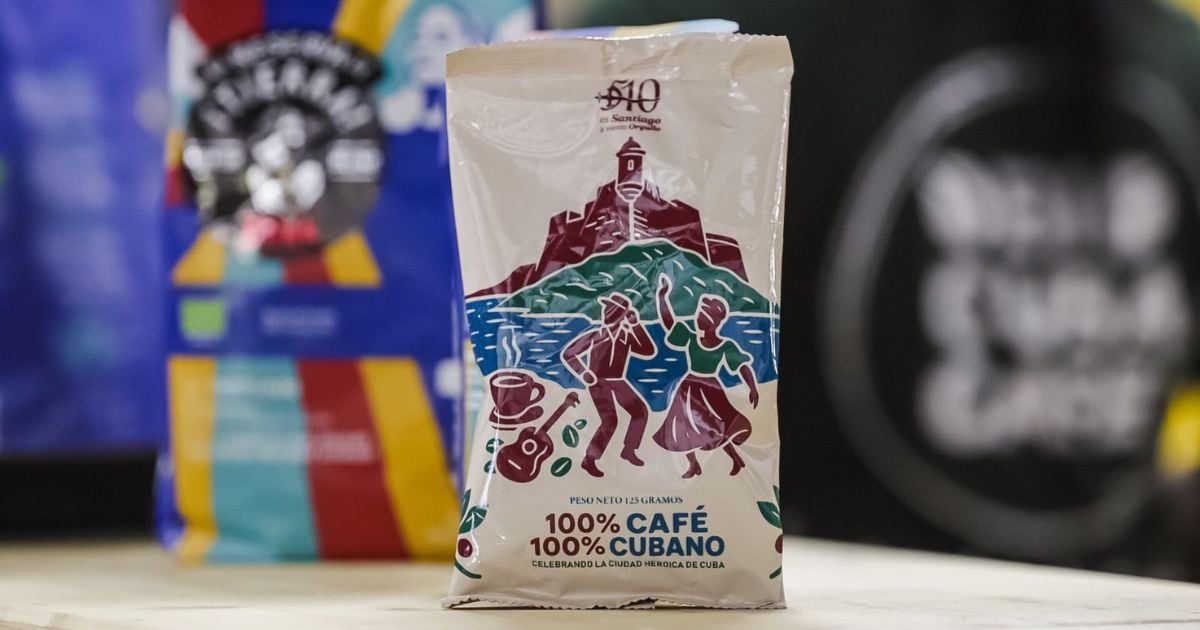The audacity of the Cuban regime seems boundless, as evidenced this Wednesday with the unveiling of a commemorative coffee to honor the 510th anniversary of Santiago de Cuba's founding. This comes at a time when the aromatic beans, a staple in Cuban households, are scarce across the nation.
TV Santiago reported on Facebook that the Italian-Cuban joint venture, BioCubaCafé, introduced the special "510 Anniversary" edition to celebrate the eastern region’s coffee heritage. This coincides with the 25th anniversary of the Southeastern Coffee Plantations' designation as a UNESCO World Heritage Site.
The launch event took place at a restored coffee plantation, attended by Omar López Rodríguez, director of Santiago de Cuba's City Conservator's Office. He highlighted the Haitian-French influence on these plantations, which have significantly shaped the economic and cultural landscape of eastern Cuba since the late 18th century.
Michele Curto, president of BioCubaCafé, emphasized the company's environmental commitment, noting that this coffee — cultivated on the region's historic slopes — is intended for the people of Santiago rather than for export.
Contradiction in the Face of Scarcity
Despite this, the irony is unmistakable: while millions of Cubans struggle to afford even an ounce of coffee with local currency, BioCubaCafé promotes a special edition as a symbolic "gift," announcing initial sales through a digital platform at 125-gram packages for 300 CUP.
The company stated that sales would be limited per user, conducted online, and available for pickup at designated stores, starting in Santiago de Cuba before expanding to other cities, including Havana.
Economic Disparity and Imported Goods
This development occurs amid a severe economic crisis where most Cubans cannot afford coffee, despite private stores being filled with imported goods. BioCubaCafé claims their coffee is 100% Cuban — unlike the popular Hola coffee, mixed with peas — and prioritizes domestic markets before international ones, though it currently exports to over 40 countries with support from the Italian group Lavazza.
Project leaders anticipate a new roasting facility in Contramaestre to be operational by year-end, boasting standards akin to Lavazza's best plants.
Promises vs. Reality
Despite official promises that export revenues would enhance coffee farmers' living conditions, the reality for most Cubans is starkly different. The regime's narrative of harmony between export and domestic markets rings hollow as coffee remains a luxury beyond reach for many, overshadowed by symbolic anniversaries and propaganda-laden ceremonies.
While the regime flaunts its showcase coffee, the true story of Cuba's plight unfolds. In May, authorities detained two individuals in Holguín transporting over 1,000 pounds of coffee in a rented car, highlighting a thriving informal market amid state control and scarcity.
This operation, conducted in the Urbano Noris municipality, reveals more about the scale of internal trafficking than governmental effectiveness in crime prevention.
That same month, a Holguín resident shared on social media the arrival of coffee at her local store after a five-month absence, underscoring the grim reality of access to basic goods. In a TikTok video, user @meli.cubanita0 expressed disbelief: "It seems unreal; so many things arriving at once in the store, but with May Day coming, they want to keep us happy. So the coffee finally arrived after being absent since December last year."
Despite regime assurances of delivering coffee to households, as of April, Santiago de Cuba, a pivotal coffee-producing province, met only 65% of its planned output by the end of February. This was acknowledged by authorities during the Provincial Assembly of the XIII ANAP Congress in March, as reported by the state-run Sierra Maestra newspaper.
Key Questions About Cuba's Coffee Crisis
Why is coffee scarce in Cuba?
Cuba faces a severe economic crisis affecting the supply of basic goods, including coffee, exacerbated by state control and limited domestic production.
What is BioCubaCafé's role in the Cuban coffee market?
BioCubaCafé is an Italian-Cuban joint venture that produces and exports Cuban coffee, with a stated priority on serving the domestic market before international exports.
How does the Cuban regime justify its coffee exports amid domestic shortages?
The regime claims that export revenues are used to improve the living conditions of coffee farmers, asserting that international and domestic markets are not in conflict.
